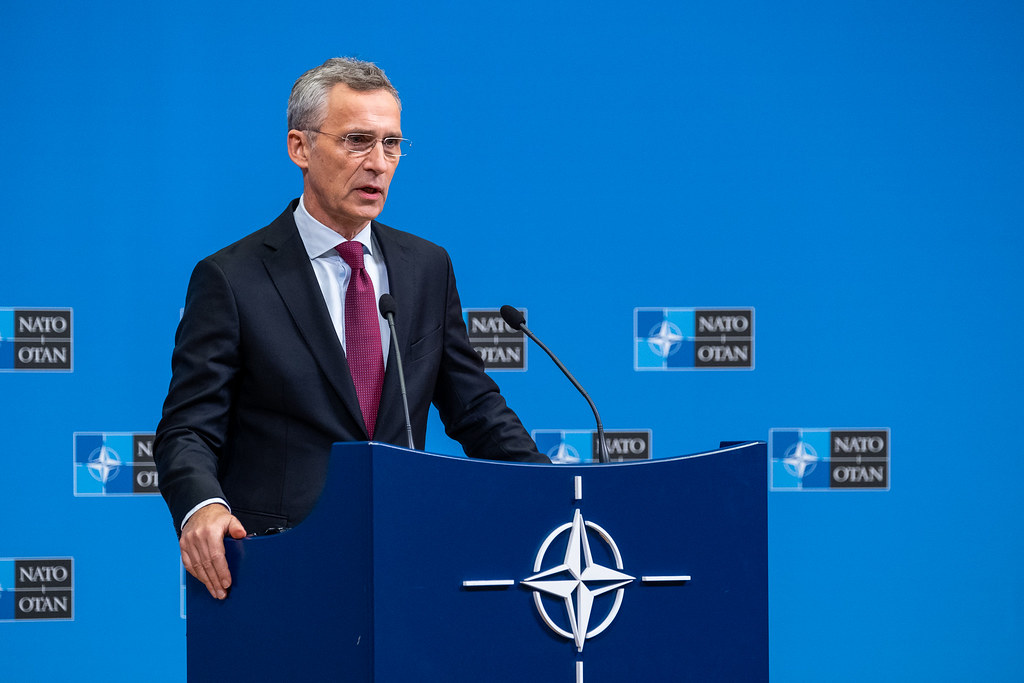Putin has managed to breathe new life into NATO

With his actions Vladimir Putin managed to give NATO that compactness that Americans and Europeans were struggling to find. The article by Ugo Tramballi for Atlantico Quotidiano
"The ninth enlargement of NATO since its foundation in 1949 will be remembered as the enlargement of Vladimir Putin," former Finnish premier Alexander Stubb wrote in the Financial Times a few days ago. Like military failure on the battlefields, it is the geopolitical disaster of the Russian president's war in Ukraine.
At the beginning of the year, joining the Atlantic Alliance was not part of the national debate in Sweden and Finland: rich, democratic and well armed, the Nordics lived a comfortable neutrality that did not prevent them from having close relations with NATO. Finland already spends 2% of its GDP on defense, as required by all allies, and has already purchased 64 F-35s, the latest generation of NATO multi-role fighters. The issue debated in Europe was rather how to "Finnishize" Ukraine, how to turn it into a neutral country to appease Putin's threats against a NATO enlargement that Western allies had not discussed for years.
What is now about to happen is that Sweden and Finland will be the 31st and 32nd countries of the alliance (the 30th was North Macedonia, in 2020); whereas the only countries in the EU that are not part of it will be Austria, Ireland, Cyprus and Malta; that with the 1,336 kilometers of the Finnish border, Russia's borders with NATO will double; that St. Petersburg, where Putin was born and began his political career, will be a few kilometers from the border town of Vyborg, beyond which there is the "enemy".
It was expected that Sweden and Finland's application for membership would be made at the NATO summit on June 29, in Madrid. The horrific behavior of Putin and his soldiers in neighboring Ukraine has prompted speeding up procedures. The requirements of democracy, free market and primacy of civil power over the military required by the Alliance are more vague than what the EU imposes on its members. In 1949 among the 12 founders was the Portugal of the dictator Salazar; in 1952, Turkey, which would have been ruled for a long time by the coup generals, entered: today it is again difficult to define the regime of Recep Erdogan as democratic. As if to confirm the perplexities, Turkey is now threatening to oppose the entry of Sweden and Finland into NATO. Scandinavians shelter opponents of the Ankara regime and like any aspiring dictator, Erdogan also thinks that anyone who opposes him is a terrorist.
To paraphrase Henry James, American foreign policy historian Michael Kimmage argues that NATO is "a fattened and weighed down monster that stretches from North America to Western Europe, from the Baltic states to Turkey." In 1991, after the end of the USSR and the dissolution of the Warsaw Pact, that is, the reason for which the Alliance was born had disappeared, the member countries, now 16, had begun to wonder what NATO was for. Bill Clinton had created a "Partnership for Peace" but was a surrogate, not a substitute for the Atlantic Alliance, in which there would be room for Boris Yeltsin's Russia, former Warsaw Pact members and neutrals.
It didn't last. As Andrei Kozyrev, Yeltsin's foreign minister, recalls, the Clinton administration took democracy in Russia dangerously for granted; George W. Bush's next was full of old Cold War gadgets that kept seeing her as an old-time opponent. In search of a raison d'etre, NATO would have been used in military missions with questionable results in Serbia, Libya, Afghanistan.
But the ratio that the Western members did not find was offered by the Eastern Europeans, freed from Soviet control but still convinced that Russia would once again be threatening. From 1999 to today, with Poland, the Czech Republic and Hungary first, 14 Eastern countries have applied for and obtained to join the Alliance.
Vladimir Putin confirmed their concerns, causing with his actions the compactness of NATO that Americans and Europeans were struggling to find. However, Michael Kimmage's warning is real: an alliance of 32 risks hypertrophy, if not governed. Recalling the terrifying four years of Donald Trump, who has by no means left the scene, the European Union is working on "strategic autonomy". The concept is still vague, it is not clear how it will harmonize with the alliance that already exists.
Just like NATO, the EU is a rather plethoric association. And somewhat contentious before the pandemic and Putin's war forced us to think together. The opportunity must not be wasted: it will define the strength or weakness of the democratic world in this and future challenges.
This is a machine translation from Italian language of a post published on Start Magazine at the URL https://www.startmag.it/mondo/putin-e-riuscito-a-dare-nuova-vita-alla-nato/ on Sun, 22 May 2022 05:18:26 +0000.
